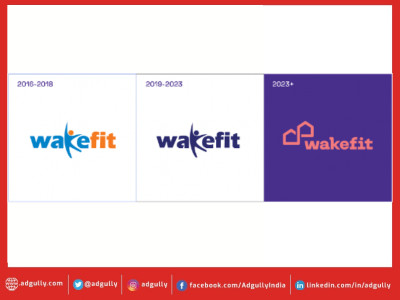Women have to overcome generations’ worth of bias: Priyam Divgi
We, at Adgully, have always saluted and honoured women managers and leaders across diverse fields. W-SUITE is a special initiative from Adgully that has been turning the spotlight on some of the most remarkable women achievers in the M&E, Advertising, Marketing, PR and Communications industry. In the refurbished series, we seek to find out how women leaders have been managing their teams and work as well as how they have been navigating through the toughest and most challenging times brought about by the global pandemic.
In conversation with Adgully, Priyam Divgi, Head - Corporate Communications, Wakefit.co, speaks about women in leadership positions in today’s market ecosystem, building specific skills for women to thrive within different work environments, always keeping one’s sight set on the bigger picture, and more.
How do you think the role and scope of women leaders have widened in the current market ecosystem?
In my view, the role and scope of women leaders can be segregated into two aspects – one is the preparedness women need to get to leadership positions and the other is the dynamics of corporate settings when women are in leadership positions.
There is a lot of work still to be done with respect to the first aspect since women in the workforce need a more layered approach to leadership training. While skills like decision-making, effective delegation, analytical thinking, etc., are required for all leaders, women have to overcome generations’ worth of bias which hampers confidence and self-worth. Addressing these barriers in a nuanced way can help women employees prepare for leadership roles.
The second aspect for women leaders who occupy executive positions is to understand and recognise the concept of second-generation gender bias – paying attention to behaviours that are not explicitly biased, but more subtle in their shape and form. Who gets assigned tasks of arranging social gatherings, who is asked to call for coffee in meetings, etc.? Getting a seat at the table is extremely important, but the quest for societal change needs to also focus on building specific skills for women to thrive within different work environments.
What has been your major learning from the pandemic period?
The major learning from the pandemic period has been the need for self-care. This is true for both men and women – but the need to invest in one’s health becomes all the more important for women as we grow up the ranks. With more responsibility on our shoulders, making time for self-care is extremely important. For me, making a cup of manual pour-over brew is therapeutic. I love it and no matter how busy the morning, I do not compromise on my self-brewed great cup of coffee.
On a professional front, prioritising and focusing on the important things has been a big learning. The workforce presents a plethora of peripheral as well as important challenges – segregating what impacts the business as well as your ability to work most and addressing those is important. It declutters one’s mind-space and allows for channels to create the most impact.
What is your mantra for maintaining a successful work-life balance in the new normal?
Personally, I believe that for women particularly, it isn’t just about work and life. There should be three aspects to it – work, me-time, and life – achieving a balance of all three has helped me have meaningful work and personal relationships and also not burn out in the process.
My personal mantra has been simple – I do things that make me feel fulfilled. It is a notch above happiness, but pursuing fulfillment in my work, me-time and other aspects of life drives me to achieve the balance between hustling and taking a step back.
What are the five most effective leadership lessons that you have learned?
Eye on the bigger picture: Always keep your sight set on the bigger picture. Be the collective custodian of the business, your team, and your own growth. Every decision that benefits all three is likely to be a good one.
Prioritise: Focus on what’s important, and more crucially, de-focus on what isn’t important.
The Dream Team: They say “surround yourself with people smarter than you and you are sure to grow”. This is true when you are hiring your team, too, and can happen when you are confident and secure in your own abilities.
Invest in learning: This is important in a leadership role. Particularly for women, leadership can open up access to networks, mentors, and other learning avenues and we should make the most of it.
Pay it forward: It is the responsibility and utmost duty of a leader to ensure they give time and effort in training and mentoring. This is especially important for women leaders to pay it forward and invest time in training talented women around them to grow, access leadership networks and continue breaking the glass ceiling.
Gender sensitivity and inclusion in the new normal – how can organisations effectively encourage and groom women leaders in challenging times?
Making women employees believe in their ability to be good leaders is extremely important. I believe organisations that invest in mentorship training for its women workforce will be in good stead to bake in diversity and inclusion practices that create real impact. Another key component of this aspect is representation – having more women in the workforce and particularly in leadership positions helps create role models that thereby promote further diversity in the professional spectrum.
I am fortunate to have worked in places that create spaces to help the women in its workforce truly flourish. However, creating these spaces across organisations and making it a norm is something we need all collectively work towards.
















Share
Facebook
YouTube
Tweet
Twitter
LinkedIn